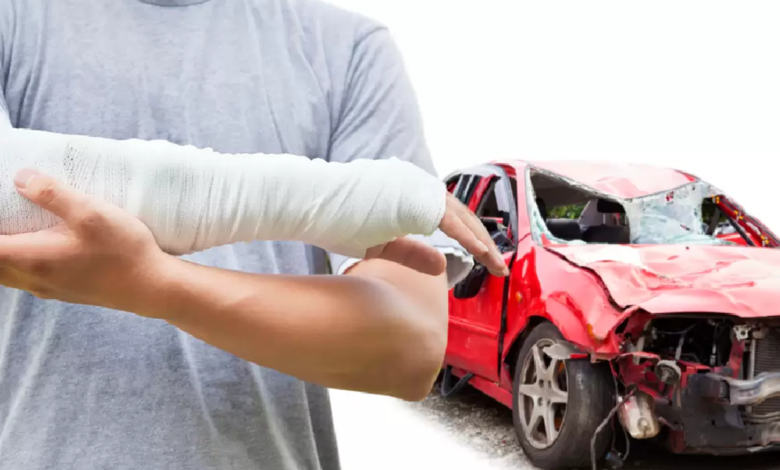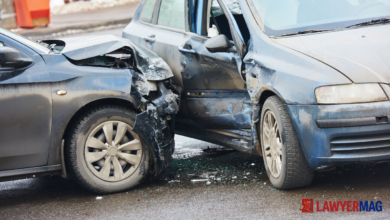Top 10 Car Accident Injuries and Their Long-Term Effects
Car accident injuries can have serious long-term effects. Discover the top 10 injuries and how they impact your future health.

Understanding the top 10 automobile accident injuries and their long-term implications is essential because of the serious and frequently life-altering consequences they cause. In an instant, car crashes can occur, turning routine trips into disastrous occurrences. The injuries received range in severity from little cuts and bruises to serious, potentially fatal illnesses that need for long-term care and emergency medical intervention. This article will examine the most frequent injuries sustained in auto accidents and discuss how they may affect the victims’ daily life and health in the long run.
It’s critical to comprehend these wounds for both recovery and prevention. While awareness and planning might help people respond more skilfully in the aftermath of an Accident Injuries, immediate medical intervention can greatly lessen the severity of the long-term repercussions. Every kind of injury has different rehabilitation requirements and obstacles, ranging from whiplash and head injuries to spinal cord damage and psychological stress. We hope to offer a thorough guide that can assist in identifying, managing, and reducing the long-term effects of auto accident injuries by thoroughly examining these ailments.
Top 10 Car Accident Injuries and Their Long-Term Effects
Head injuries are among the most serious outcomes of car Accident Injuries. These can range from minor concussions to severe traumatic brain injuries (TBI). The brain, being a delicate organ, can suffer significant damage even from a seemingly minor impact.
Long-term effects
TBIs can lead to cognitive impairments, emotional instability, and physical disabilities. Many victims experience chronic headaches, difficulty concentrating, memory loss, and mood swings. Severe cases might result in permanent disability or require long-term rehabilitation.
Personal anecdotes and real-life stories often highlight the struggle of TBI victims in reclaiming their lives, emphasizing the need for early intervention and continuous support.
Neck Injuries (Whiplash)
Whiplash is a common neck Accident Injuries caused by the sudden jerking motion of the head, often seen in rear-end collisions. This rapid movement can strain or tear the muscles and ligaments in the neck.
Long-term effects
While many recover within a few weeks, others might suffer from chronic neck pain, stiffness, and reduced range of motion. Some develop secondary issues like chronic headaches or shoulder pain. It’s essential to seek medical attention immediately to minimize long-term effects and start appropriate treatment.
Back Injuries
Back injuries are prevalent in car accidents and can significantly impact one’s quality of life. These injuries range from minor sprains to severe spinal cord damage.
Impact on daily life
Chronic pain, limited mobility, and dependency on pain relief medications are common issues faced by back injury victims. These injuries can also affect one’s ability to work and perform daily tasks.
Long-term consequences
Persistent pain, herniated discs, and even disability in severe cases. Early diagnosis and physical therapy can help mitigate some of these long-term effects.
Spinal Cord Injuries
Spinal cord injuries (SCI) are among the most severe consequences of car accidents. The impact can damage the spinal cord, leading to partial or complete paralysis.
Severity and types
Depending on the injury’s location and severity, victims might experience paraplegia (paralysis of the lower body) or quadriplegia (paralysis of all four limbs).
Rehabilitation and recovery
Intensive rehabilitation is crucial for SCI victims. While some regain partial function, others may require lifelong care and assistive devices.
Long-term effects
These include loss of mobility, chronic pain, and secondary conditions like respiratory issues or pressure sores. Support groups and adaptive technologies can improve quality of life.
Chest Injuries
Chest injuries from car accidents often result from the impact with the steering wheel or seatbelt. Common injuries include rib fractures, lung contusions, and damage to internal organs.
Immediate and long-term impact
Rib fractures can be extremely painful and slow to heal, often leading to complications like pneumonia if not treated properly. Lung injuries might result in long-term breathing difficulties.
Treatment options
Pain management, physical therapy, and sometimes surgery are necessary to address these injuries. Early intervention can prevent complications and long-term health issues.
Abdominal Injuries
The abdomen houses many vital organs, making it particularly vulnerable in car accidents. Common abdominal injuries include damage to the liver, spleen, and intestines.
Symptoms and diagnosis
Symptoms may include severe pain, internal bleeding, and organ damage. Immediate medical attention is crucial.
Long-term health effects
These can range from chronic pain and digestive issues to long-term organ dysfunction. Surgical interventions and ongoing medical care are often required to manage these injuries.
Broken Bones
Car accidents frequently result in fractures due to the high impact forces involved. Commonly broken bones include the arms, legs, and ribs.
Healing process and complications
While bones generally heal with proper medical care, complications like malunion (improper healing) or nonunion (failure to heal) can occur.
Long-term impact on mobility
Some fractures may result in long-term mobility issues, chronic pain, or arthritis, particularly if the injury affects a joint. Physical therapy and rehabilitation play a vital role in recovery.
Internal Injuries
Internal injuries are often the most insidious, as they might not be immediately apparent. These can include damage to organs, internal bleeding, and other critical conditions.
Detection and immediate care
Advanced imaging techniques like CT scans and MRIs are essential for diagnosing internal Accident Injuries.
Long-term health concerns
Internal injuries can lead to ongoing health problems, including chronic pain, organ dysfunction, and the need for repeated surgeries.
Psychological Injuries
The psychological impact of car accidents is profound and often overlooked. Victims might experience post-traumatic stress disorder (PTSD), anxiety, depression, and other mental health issues.
Impact on mental health
Psychological injuries can affect every aspect of a victim’s life, from personal relationships to job performance.
Common psychological injuries
PTSD, characterized by flashbacks, nightmares, and severe anxiety, is common among accident victims. Other issues include generalized anxiety disorder and depression.
Soft Tissue Injuries
Soft tissue injuries, including sprains, strains, and bruises, are common in car Accident Injuries. While often considered minor, they can cause significant discomfort and mobility issues.
Types of soft tissue injuries
Injuries to muscles, ligaments, and tendons are common. Whiplash is a specific type of soft tissue injury affecting the neck.
Symptoms and treatment
Symptoms include pain, swelling, and reduced mobility. Treatment often involves rest, physical therapy, and sometimes surgery.
Long-term impact on physical activity
Chronic pain and reduced mobility can persist, affecting daily activities and quality of life.
Facial Injuries
Facial injuries from car accidents can range from cuts and bruises to severe fractures and disfigurement. These injuries can have both physical and emotional repercussions.
Common facial injuries
Fractures of the jaw, nose, and cheekbones are common, as well as dental injuries.
Treatment and recovery
Surgical intervention, cosmetic surgery, and dental work are often required. Recovery can be lengthy and painful.
Read More: How to Choose the Best Lawyer for Your Legal Needs: Expert Tips
Conclusion
The top ten injuries from auto accidents and their long-term consequences emphasise how crucial it is to receive thorough medical attention as soon as possible after an Accident Injuries. These injuries can drastically change a person’s quality of life, ranging from whiplash and traumatic brain injuries to spinal cord injury and psychological trauma. Recognising the potential long-term effects of these Accident Injuries makes it easier to understand why prompt medical attention, ongoing rehabilitation, and emotional support are essential. Improving recovery outcomes and avoiding complications require early diagnosis and treatment.
Using a comprehensive strategy that incorporates social, psychological, and physical support networks is also necessary to address these injuries. It is possible for victims to experience difficulties that call for ongoing medical attention, counselling, and everyday life modifications. On the other hand, many people may make a substantial recovery and take back control of their life if they are given the correct tools and assistance. In addition to aiding in the better management of specific instances, increasing public knowledge of these injuries and their long-term effects highlights the need of road safety precautions in averting accidents in the first place.
FAQs
What should I do immediately after a car Accident Injuries?
Immediately after a car Accident Injuries, ensure your safety and check for injuries. Call emergency services, exchange information with other parties involved, and seek medical attention even if you feel fine, as some injuries may not be immediately apparent.
Can psychological injuries from a car accident heal completely?
While some individuals fully recover from psychological injuries with appropriate treatment, others may experience long-term effects. Therapy, medication, and support groups can significantly aid in the healing process.
How can I prevent long-term effects from car accident injuries?
Prompt medical attention, following treatment plans, engaging in physical therapy, and seeking psychological support are crucial steps in preventing long-term effects.
Are some Accident Injuries more prone to long-term effects than others?
Yes, Accident Injuries like traumatic brain injuries, spinal cord injuries, and severe psychological trauma are more likely to have long-term effects compared to minor injuries.
What resources are available for car Accident Injuries?
Resources include medical professionals, physical therapists, mental health counselors, support groups, and legal assistance to navigate the aftermath of an accident. Reaching out to these resources can aid in recovery and provide much-needed support.












One Comment